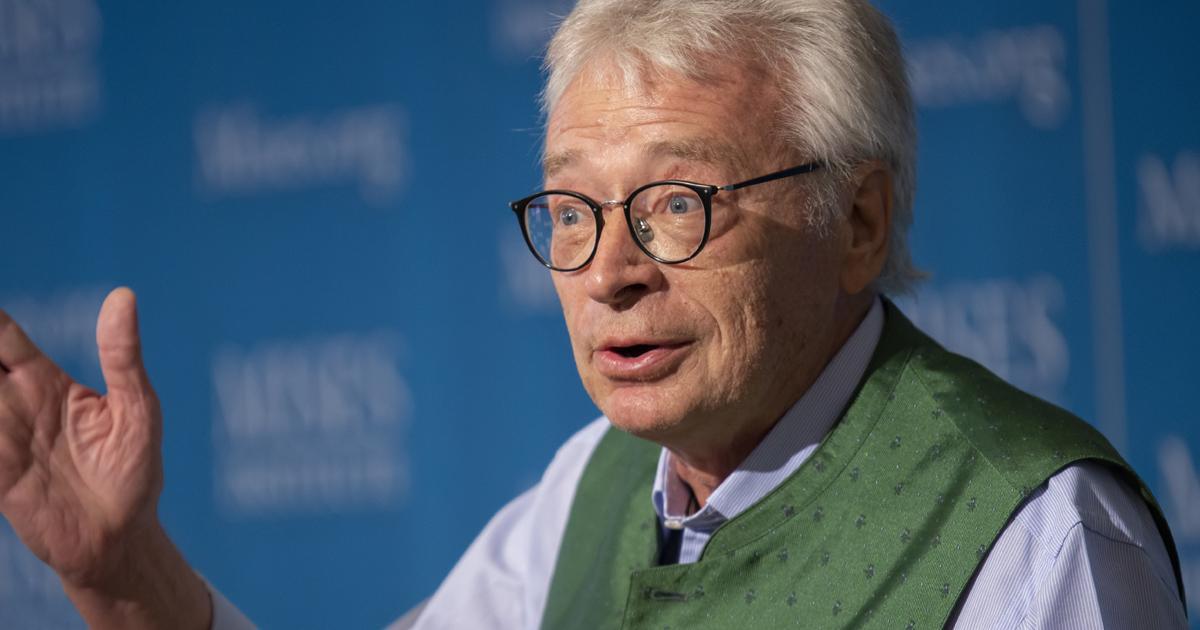
Review: Economy, Society, and History
Economy, Society, and History
by Hans-Hermann Hoppe
Mises Institute, 2021
191 pp.
In 2004, Hans Hoppe delivered a series of lectures at the Mises Institute about his theory of social evolution, and we are fortunate to have this volume, based on a transcript of those lectures, now available. As one would expect, the book contains much of interest, and in what follows I shall comment on only a few of the topics that this gifted and erudite scholar discusses.
Hoppe is a close student of Ludwig von Mises, and he emphasizes with great force some often neglected insights to be found in his work. One of the most valuable of these is that the advantages of exchanges using money over barter extend to worldwide trade as well as to trade within the local community or nation.
Now, as we imagine that the division of labor expands and ultimately reaches and encompasses the entire globe, as different regions begin to trade with each other, we can see that there will be in the market also a tendency for one type of regional money to outcompete other regional types of money, with the ultimate result to be expected being that there will be only one, or at most two types of money left over, which are used universally. (p. 45)
As Hoppe points out, Mises uses this insight about the benefits of widely extended trade to counter the social Darwinist claim that national or racial groups advance through violent struggle. It is, by the way, the height of ignorant fatuity to say that Mises himself was a social Darwinist, as the leftist historian Quinn Slobodian, for one, has not scrupled to do. If violent struggle explains social advancement, Mises asks, why would it not also apply to individuals within a group? “The next problem, the more decisive one, is that people who accept these Darwinian interpretations have to explain why there should be division of labor and peaceful relationships within a group but not between different groups. After all, the same principles seem to be at work.” (p. 46)
Hoppe is much more than an insightful expositor of Mises and Murray Rothbard. He has applied their views in new contexts, often in daringly speculative ways. Both of these thinkers say that time preference is a necessary feature of human action. Given a choice between the identical good now and, say, one year from now, people will not think that the two choices provide equal satisfaction but will require a premium to accept the future good. By investment in capital equipment people can obtain more consumption goods than if they immediately consume what is on hand, and the rate of time preference determines their willingness to postpone consumption and invest. Those who do not require much of a premium have low time preference, and those who do have high time preference. Societies composed of people with low time preference will increase their supply of capital goods more than those with high preference and so prosper in future.
So much is not controversial, but Hoppe speculates on which groups have high time preference, and on one occasion, his doing so led to trouble for him. “I made the point that if you compare homosexuals to regular heterosexuals with families, you can say that homosexuals have a higher time preference because life ends with them. I always thought that that was so obvious, almost beyond dispute … these harmless remarks have led to three months of harassment at my university and the whole thing is still not over yet” (p. 60). I am glad to report that, in the years since these lectures were delivered, Hoppe has been vindicated, and we may deplore the “woke” culture, which has only intensified in recent years, by which academic freedom is suppressed when “protected” groups object to something.
Speculations about the rates of time preference of different groups must be supported empirically, and until this has been done, they must be regarded as conjectures, however plausible one may find them. Also, a caution needs to be borne in mind, though in pointing this out, I do not intend to suggest that Hoppe lacks awareness of it. If one says that a group has a higher time preference than another group, that is a comparative judgment, not a judgment on an absolute scale, and it does not immediately follow that the former group has a high time preference rate. By analogy, if doctors are smarter than nurses, it does not follow that nurses are stupid.
Hoppe, as will already be evident, does not hesitate to defy conventional opinion, and he does so in one way that will surprise many libertarians, who celebrate the common law of England, seeing in it a bastion of English and later American liberty. Hoppe says,
Anglo-Saxons looked down on codified law and hailed their own noncodified common law. I just want to remark that, for instance, Max Weber had a very interesting observation regarding this. He sees the reason for the noncodification of the common law in the self-interest of the lawyers to make the law difficult to understand for the layman and thus make a lot of money. He emphasizes that codified law makes it possible for the layman on the street who can read to study the law book himself and go to court himself and point out, here, that this law is written down. So maybe the excessive pride that the Anglo-Saxons have in their common law might be a little bit overdrawn. (p. 111)
The book is filled with insights, and I shall close with just one more. Hoppe sees the French Revolution as beginning a trend toward ideological wars, much more destructive than the limited wars of the previous century.
The French Revolution represents, in a way, a return to these religious types of wars that I mentioned earlier. It is an ideologically motivated event…. For the first time was seen now, during the French Revolution, and in particular after Napoleon comes to power, the draft, a mass draft. All the people of the French population are somehow made participants in the war. There exists no clear-cut distinction anymore between combatants and noncombatants; the resources of the entire nation are put at the disposal of the warring armies. (pp. 164–65)
Ideological wars continued in the twentieth century, giving us the two world wars, with all their horrors and catastrophes.
Economy, Society, and History is a major work, allowing readers to benefit from Hoppe’s insights into a number of areas he has not addressed in other books. No reader can fail to be instructed and enlightened by it.



